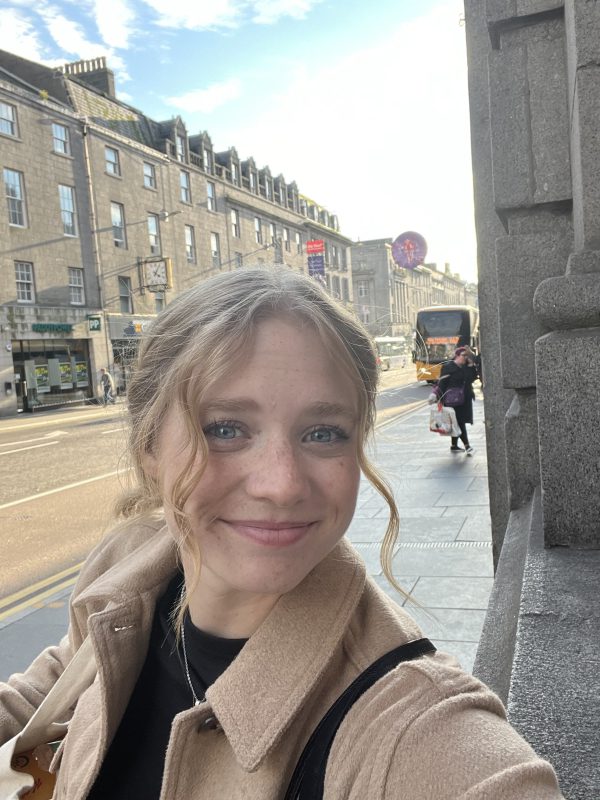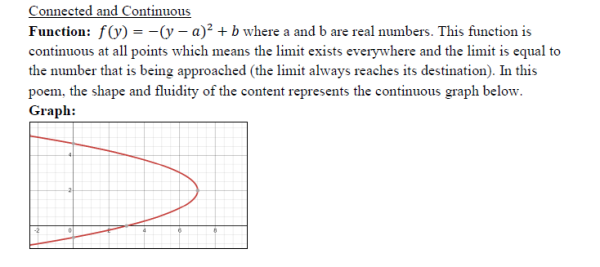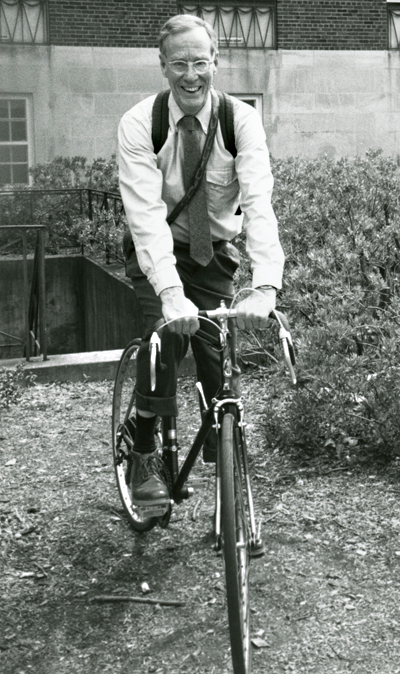The music of a modern-day pop star helped a Kalamazoo College class discover last term that poetry, despite its history and ancient beginnings, still shapes how we as humans can sort through our emotions and define our identities. As a result, if you feel a need to be expressive in April, which serves as National Poetry Month, don’t just shake it off. Learn instead from Visiting Assistant Professor Monique McDade and the students who took Reading the World and Identities: Taylor Swift and Other Tortured Poets.
Swift could aptly be described as a tortured poet, sharing her intense emotional conflicts, acute sensitivities and tendencies to dwell on life’s darker aspects through her music, just as many great creatives have throughout history. Modern music itself is a form of poetry, characterized by its expressive language, rhythm, rhyme and ability to evoke emotions and tell stories, often in a way that resonates with a broad audience, particularly through song lyrics. These poetic elements make Swift a strong choice of performers to study alongside writers from Angelou to Wordsworth.
“It’s been an interesting class for me as a teacher because I’ve been a Swifty since I was 15, which was about the same age she was at the time,” McDade said. “Now, I have the chance to talk about her and teach her to a new generation.”
McDade was surprised to learn how few of the students going into the class would’ve counted themselves among Swifties, who self-identify as big Taylor Swift fans. She said out of 19 students in the class, only four said they were among the die-hard followers. That presented an opportunity.
“I was scared going in that we would’ve just been geeking out with no critical capacity,” McDade said. “Instead, I’ve heard, ‘I’m skeptical of this or that,’ and it’s been really fun to watch them soften to her. When we think about her as a poet rather than a pop artist, I think students get a different perspective, so those that are maybe not considering themselves fans walk away with a different respect for what she’s doing, even if it’s not their taste.”
Students pursued course assignments that consisted of readings about poets, a podcast and weekly reflections—pondering how they themselves might be considered tortured poets.
“Every week we had a prompt related to the course content, where I asked them to write a poem,” McDade said. “Some of them hated it, some of them loved it and some of them have grown to love it, but it’s been really beautiful. They were reading Taylor Swift or another poet, and they wrote a poem in reference to it or responded to it in some way. It’s showing how being an artist is about relating to other people. It’s OK if what they write seems to be insignificant or unimportant to the rest of the world, because Taylor has built an entire empire off of it.”
The podcast project grouped students together to create four episodes and a complementary blog that explored how different influences can shape the identity of an artist like Swift.
“In our contemporary age, nothing is more influential than the internet,” McDade said. “I wanted students to think about engaging ethically in online conversations about someone like Taylor Swift. We live in an age where people like to say a lot of things online that they wouldn’t say in person to someone.”
McDade’s favorite podcast title was “The Asylum I Grew up in.” The group included Grace Barber ’28.
“We decided on the title for our podcast because we wanted to have some fun playing on a Taylor Swift lyric, but also we wanted to capture some of the seriousness of the topic we were discussing,” Barber said. “‘The asylum where they raised me’ is a lyric from a song our group loves, Who’s Afraid of Little Old Me, and hints at the brutal nature of the media we were talking about.”



The podcast examined different so-called asylums that Swift faced during her formative years, such as the media spotlight or being a female in the music industry.
“Speaking for myself, looking at Taylor Swift as a poet throughout this project and course really expanded what I define as a poet,” Barber said. “Exploring the identity of being a ‘tortured poet’ and applying it to anyone, not just historic poets and artists, really connected listening to Taylor Swift’s music with many common experiences of girlhood, womanhood and growth through hardship. Literature and poetry can encompass a lot more things than I had previously thought of with English class, and I had so much fun in this course listening to music and poetry in a new way.”
National Poetry Month was launched by the Academy of American Poets in 1996 to highlight the importance of poetry and poets in culture while encouraging the reading, writing and appreciation of poetry.
“A big thing with this course, as with National Poetry Month, has been that we wanted to make a case for the importance of poetry,” McDade said. “On my syllabus, we pull a quote from author Julia Kristeva about poetic language as a destabilizing force to social norms or to power structures. In some ways, this gets interpreted as madness, so the students have been able to think about the things that torture them. Here on campus, a lot of them will talk about feeling not good enough, and because that resonates with Taylor, a lot of her lyrics talk about that, too. It’s been fun to think about poetry not as something elitist or highbrow, but as something all of us can practice. Maybe we’re not all going to make careers off of it, but we all certainly can practice it.”












 Writer in Residence Diane Seuss has published a poem, “backyard song,” in the February issue of Poetry Magazine. Di’s poem is part of a group of a recently devised poetic form known as the Golden Shovel, an homage to the poet Gwendolyn Brooks, who would be 100 years old this year. The last words of each line in a Golden Shovel poem are, in order, words from a line or lines taken often, but no invariably, from a Brooks poem.
Writer in Residence Diane Seuss has published a poem, “backyard song,” in the February issue of Poetry Magazine. Di’s poem is part of a group of a recently devised poetic form known as the Golden Shovel, an homage to the poet Gwendolyn Brooks, who would be 100 years old this year. The last words of each line in a Golden Shovel poem are, in order, words from a line or lines taken often, but no invariably, from a Brooks poem. In a speech he gave in 1987, Professor Emeritus of English Conrad Hilberry said, “When I think of poems that I am especially drawn to, I find they often have a silence, a mystery at the center.”
In a speech he gave in 1987, Professor Emeritus of English Conrad Hilberry said, “When I think of poems that I am especially drawn to, I find they often have a silence, a mystery at the center.”